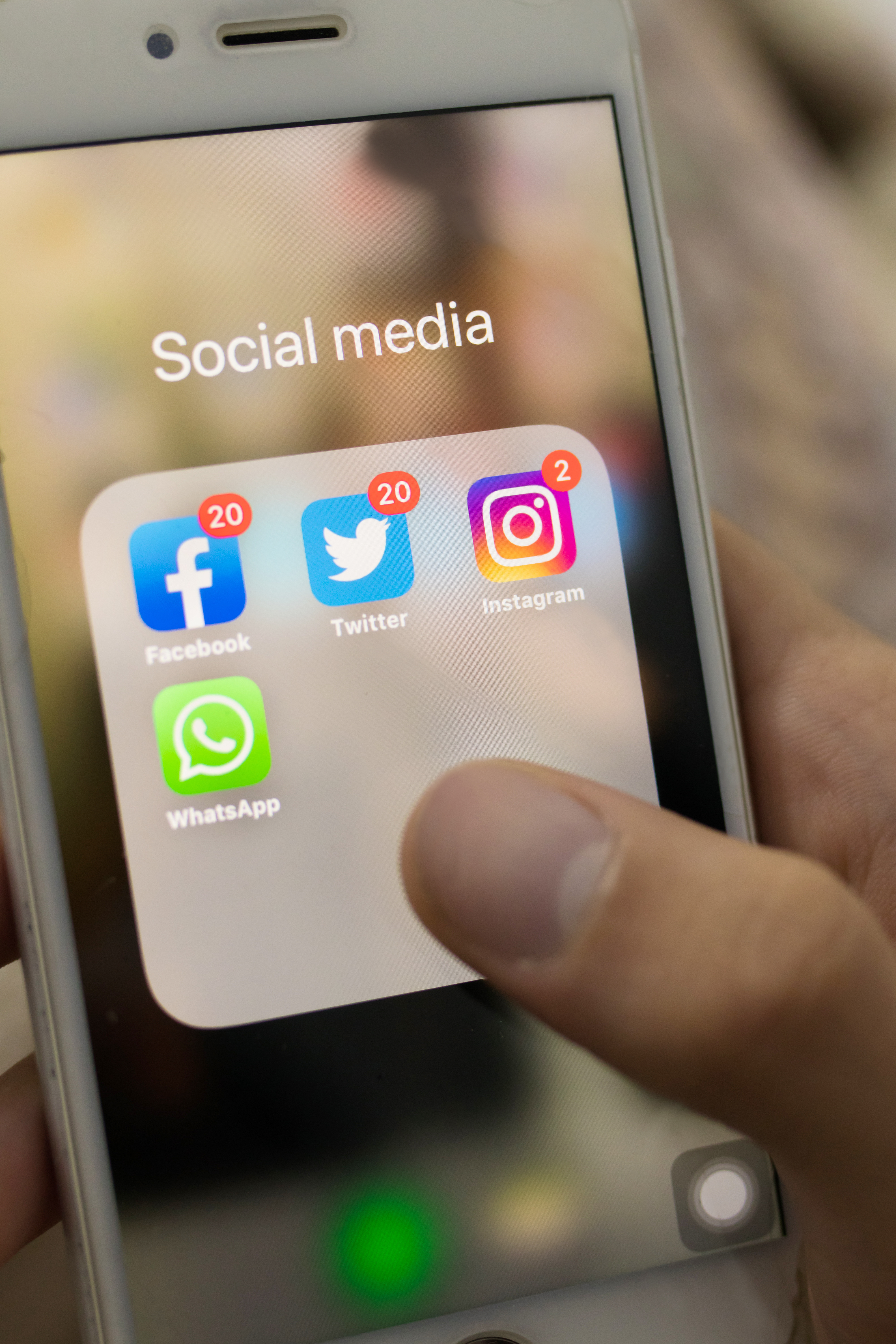Conversations in Grief Blog: Notifications
Notifications
by Hilary Furnish

Photo credit: carballo - stock.adobe.com
I have a simple morning routine each day, which, like many of us, includes checking my social media accounts for notifications. The bright red alert that something interesting may have happened. A message from a friend, a memory I may want to see, and of course, whose birthday it is that day. These notifications help us remember our past and stay connected with others we may seldom see in person. They can help us keep track of things and make us feel closer to our loved ones when they are far away. They also remind us of who we have lost and the grief we feel in their absence.
When a loved one dies, the digital legacy they leave behind today becomes so valuable. Each image, post, video, or voicemail is a piece of their life and a way to keep them alive when they are gone. For those who have lost a loved one, the social media accounts, cell phones, and other digital records of their person may become the most treasured possession. It is now common when someone dies for their social media accounts to be inundated with messages or posts from friends and family saying what they wish they could have or sharing a memory. Facebook has even designated a way to name a person to manage your account and have it memorialized. This allows others to access and leave messages while acknowledging the account is no longer active. We live two lives, one in person and one online. As a result, the thought of canceling a cell phone or deleting an account is like losing a loved one again.
In the grief support we provide, we often hear of how being able to send a message, listen to a voicemail, or scroll through a social media account helps cope with the loss experienced. These digital records are also challenging reminders when a notification pops up for a birthday or a memory and instead of comfort, it reminds us of all we have lost. Birthdays that will be missed and the realization that we won’t make new memories with our loved one. The ability to keep the reminders also reveals how hard it is to live in the world without them.
After losing a loved one, what should our relationship be with their digital footprint? Where grief is concerned, your relationship with their online or digital memories should reflect the connection you have with them in life. Cherish the memories and be mindful of what is too difficult to face. Be careful to remember that while some time with their digital self is good, it should not take over your life. You may choose to keep a phone or account active for a time and that is okay. Be mindful to investigate what is most comforting about it to you. Is it the ability to send messages or simply to look through their photos or videos? Or is it that canceling the service represents another loss? It is okay to hang on if it doesn’t harm or inhibit your ability to reconstruct your life without them. Take your time and cherish the memories they left behind. Do so in a way that allows you to honor your grief and stay connected as you redefine what your life is like in their absence.
In light of this topic, I am including a few helpful links for managing social media accounts when someone has died or to designate a beneficiary for an account. To learn more about designating a social media beneficiary, visit Social Media Beneficiary Information. https://trustandwill.com/learn/what-happens-to-your-social-media-when-you-die
For more information on memorializing a Facebook account, go to Memorialize a Facebook Account. https://www.facebook.com/help/1111566045566400.
To designate someone as a legacy contact for your Facebook account, visit Facebook Legacy Designation. https://www.facebook.com/help/1568013990080948.